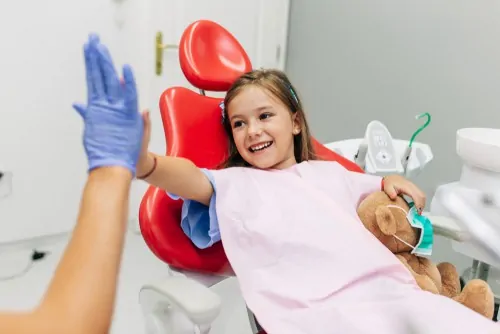
October is National Dental Hygiene Month, an entire 31 days dedicated to our trusted and caring hygienists. This year, like most things, the celebration is a little bit different and has an appropriate theme — Faces of Courage. Sponsored by the American Dental Hygienists’ Association and Colgate, National Dental Hygiene Month strives to spread thanks to all hygienists and praise their commitment to keeping patients healthy. To help celebrate, your dentist in Clyde wants to share some of the things dental hygienists do and show just how important they are to our office.
What Do Dental Hygienists Do?
Many patients believe that hygienists only clean teeth. The truth is, they do so much more. In fact, it’s not uncommon for patients to see and spend more time with their hygienists than their dentist, they do that much! While laws and rules differ from state to state and a hygienist’s specific duties can vary accordingly, there are some common things that many hygienists do on a daily basis such as:
How Do You Become a Dental Hygienist?
To become a dental hygienist, one needs to receive training and get certified. Many hygienists attend a local community college, technical college, dental school, or university programs to complete the recommended courses and training. It usually takes around two years to become a licensed dental hygienist, and many students will receive an associate’s degree. But some universities even offer four-year degrees, along with master’s degree programs. After a degree is received, hygienists will then take a licensing exam on either the state, regional, or national level.
This month, and every month, take time to thank your dental hygienist for all they do to help keep you healthy. And if you’re overdue for a dental cleaning, call your dentist in Clyde to schedule an appointment with a dental hygienist today!